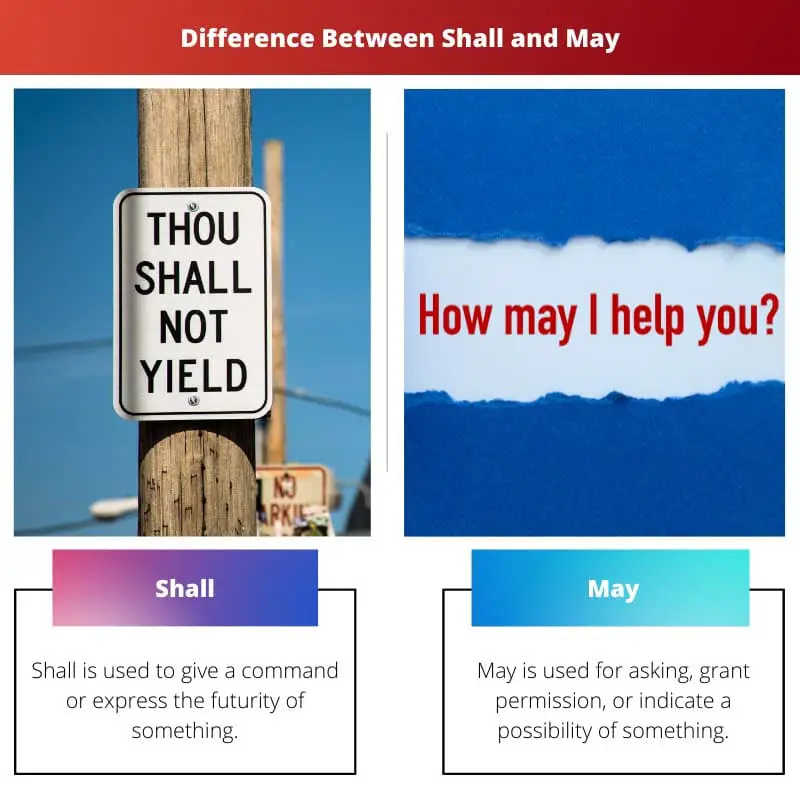To communicate appropriately, our language and grammar usage needs to be good. Grammar is known as a structural foundation. It helps us to convey precise meaning and avoids confusion.
If grammar is not used correctly, the message’s meaning can change; hence, one should know the correct usage of words according to the context. Grammar has eight parts of speech.
Key Takeaways
- Shall is used to indicate a command or a requirement, while May indicates permission or possibility.
- Shall is mandatory and implies a legal obligation, while May is optional and implies a choice.
- Shall is used in formal writing and legal documents, while May is used in everyday speech and writing.
Shall vs May
Shall is used when you give a command or tell something inevitable, whereas may is used when one needs permission and something is optional (not an order). Shall is mandatory, whereas may is used when it is left to an individual to decide.

Shall act like a command, something that is mandatory. It is used to express something likely to happen in the future.
May is a modal auxiliary verb after the subject and before another verb. The word may is used to ask, give or refuse permission about a possibility or probability, also used in formal writing (academic or legal writing). It is sometimes used interchangeably with ‘can’.
Comparison Table
| Parameters of Comparison | Shall | May |
|---|---|---|
| Meaning | Shall is used to give a command or express the futurity of something. | May is used for asking, granting permission, or indicating a possibility of something. |
| Intensity | Comparatively sounds more intense. | sounds less intense |
| Past form | Past variation of shall is should. | Might is used at times as a part variation of May. |
| Form of the Subject | Indicates action by a singular or plural subject. | May is used for indicating action by a singular subject. |
| Tense | Future tense | Simple past or present |
| Indicates | Shall indicate a manifestation of possibilities. | May demonstrates an implied possibility. |
What is Shall?
Shall is a modal auxiliary verb to express simple futurity, things that seem likely to happen, or inevitable things. It is also used to express command in regular use or legal writing.
Shall indicate future actions when the subject is singular or plural. It can be used in the first, second, and third person.
The negative form of shall is ‘shall not’, and the contraction of shall not is ‘shan’t’. The past tense of shall is should and is confused with ‘will’.
Examples – the usage of shall
- When used as a suggestion – “shall we take a cab home?
- When used as an offer – “I shall make the arrangements for your stay.”

What is May?
May is a modal verb used after the subject and before another verb. You cannot use May with another modal verb.
May is used for asking or granting permission, indicating possibility or probability, and in legal writings; it is a subordinate clause used to express a purpose. It sometimes gives a sense of uncertainty.
Examples – usage in a sentence
- When to explain something, – “she may have been sleeping all day.”
- When used to indicate something, – “he may be back this year.”

Main Differences Between Shall and May
- Shall is used to give a command or express the futurity of something, whereas may is used to ask, grant permission, or indicate a possibility.
- Shall give a sense of certainty, whereas may is used when things are uncertain.




